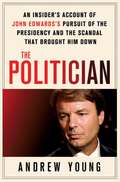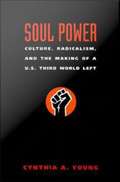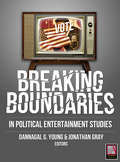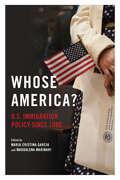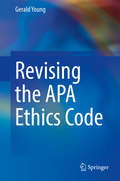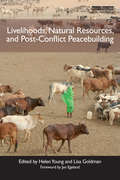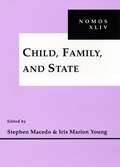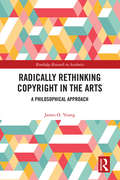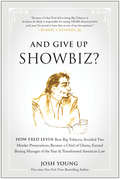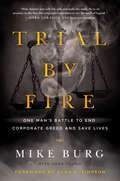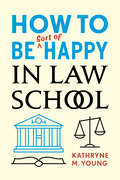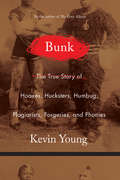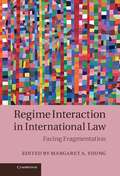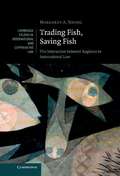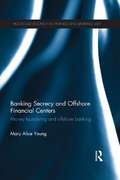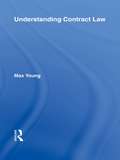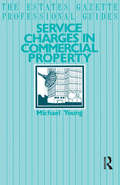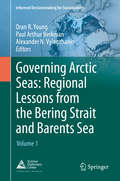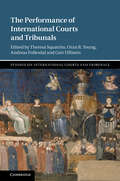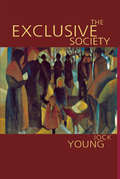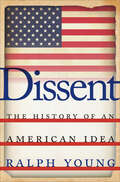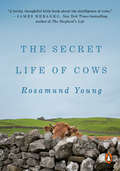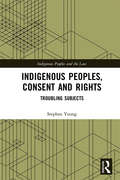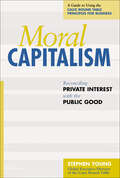- Table View
- List View
The Politician: An Insider's Account of John Edwards's Pursuit of the Presidency and the Scandal That Brought Him Down
by Andrew Young"The Politician" offers a look at the trajectory which made John Edwards the ideal Democratic candidate for president, and the hubris which brought him down, leaving his career, his marriage, and his dreams in ashes.
Soul Power: Culture, Radicalism, and the Making of a U.S. Third World Left
by Cynthia A. YoungSoul Power is a cultural history of those whom Cynthia A. Young calls "U. S. Third World Leftists," activists of color who appropriated theories and strategies from Third World anticolonial struggles in their fight for social and economic justice in the United States during the "long 1960s. " Nearly thirty countries in Africa, Asia, and Latin America declared formal independence in the 1960s alone. Arguing that the significance of this wave of decolonization to U. S. activists has been vastly underestimated, Young describes how literature, films, ideologies, and political movements that originated in the Third World were absorbed by U. S. activists of color. She shows how these transnational influences were then used to forge alliances, create new vocabularies and aesthetic forms, and describe race, class, and gender oppression in the United States in compelling terms. Young analyzes a range of U. S. figures and organizations, examining how each deployed Third World discourse toward various cultural and political ends. She considers a trip that LeRoi Jones, Harold Cruse, and Robert F. Williams made to Cuba in 1960; traces key intellectual influences on Angela Y. Davis's writing; and reveals the early history of the hospital workers' 1199 union as a model of U. S. Third World activism. She investigates Newsreel, a late 1960s activist documentary film movement, and its successor, Third World Newsreel, which produced a seminal 1972 film on the Attica prison rebellion. She also considers the L. A. Rebellion, a group of African and African American artists who made films about conditions in the Watts neighborhood of Los Angeles. By demonstrating the breadth, vitality, and legacy of the work of U. S. Third World Leftists, Soul Power firmly establishes their crucial place in the history of twentieth-century American struggles for social change.
Breaking Boundaries: In Political Entertainment Studies
by Dannagal G. Young Michael X. Delli Carpini Lauren Feldman Megan R. Hill Geoffrey Baym Heather Lamarre Larry Gross Roderick P. Hart Amber Day Jeffrey P. Jones R. Lance Holbert Paul R. Brewer Jonathan Gray Arlene Luck Lindsay HoffmanThis book brings together a collection of scholars whose work is leading the field of political entertainment studies, and yet it crosses methodological divides to do so, with quantitative and critical/cultural perspectives both represented. Indeed, each author worked as a part of a pair, addressing a similar topic as a colleague from across the divide. The result is a series of essays that add to and move beyond the state of political entertainment research--not only in content, but also in approach--by challenging readers to expand their thinking on these topics outside of the regular strictures. It begins with direct discussion of methodological divides in the field, as Michael Delli Carpini and Jeffrey P. Jones offer an essay, response, and further response. Following this initial, explicit tackling of methodology and what is at stake, Geoffrey Baym and Lindsay Hoffman each examine partisan language and interviews in The Daily Show with Jon Stewart and The Colbert Report, respectively; Lauren Feldman and Paul Brewer examine satirical treatments of science; Amber Day and Heather LaMarre address the importance of Stephen Colbert's Super PAC; Dannagal G. Young and Roderick Hart discuss The Daily Show's treatment of political participation, citizenship, and social protest; and finally, Megan Hill and R. Lance Holbert each wrestle with developing a normative approach to political satire. Read what scholars think!
Whose America?: U.S. Immigration Policy since 1980
by Elliott Young Monique Laney Yael Schacher Leisa J Abrego Carly Goodman Julia Rose Kraut Julio Capó Jr. Carl Bon Tempo Carl LindskoogA centerpiece of contemporary politics, draconian immigration policies have been long in the making. Maria Cristina Garcia and Maddalena Marinari edit works that examine the post-1980 response of legislation and policy to issues like undocumented immigration, economic shifts, national security, and human rights. Contributors engage with a wide range of ideas, including the effect of the Illegal Immigration Reform and Immigrant Responsibility Act and other laws on the flow of migrants and forms of entry; the impact of neoliberalism and post-Cold War political realignment; the complexities of policing and border enforcement; and the experiences of immigrant groups in communities across the United States. Up-to-date yet rooted in history, Whose America? provides a sophisticated account of recent immigration policy while mapping the ideological struggle to answer an essential question: which people have the right to make America their home or refuge? Contributors: Leisy Abrego, Carl Bon Tempo, Julio Capó, Jr., Carly Goodman, Julia Rose Kraut, Monique Laney, Carl Lindskoog, Yael Schacher, and Elliott Young
Revising the APA Ethics Code
by Gerald YoungThis integrative volume proposes major revisions to the APA ethics code and works toward creating an ethics code applicable across psychology, psychiatry, and related mental health professions. Careful analysis identifies theoretical and structural deficits in the principles and standards comprising the existing APA code, corrects its ambiguities, and provides scientific and compare-contrast illustrations to address current and potential controversies arising from current gray areas. Proposed revisions are informed by the American Medical Association, Canadian Psychological Association, and international ethics codes, emphasizing not only clearer language and diverse situations but also deeper conceptualizations of professional skills such as decision-making and client engagement. Ideally, the resulting universal code would be more inclusive of evolving ethical challenges in increasingly complex work environments and society. Included in the coverage: Comparison of the APA and CPA ethics codes. Proposing five core and five supplementary ethical principles and their sub-principles. Analyzing the APA's ethical standards toward revising the APA ethics code. Elucidating new standards, domains, sub-domains, and meta-principles. Culling lessons from the 2017 AMA medical ethics code. Examining ethical decision-making: fallacies/biases and models. Proposing new concepts, such as participatory ethics and psychological co-regulation. Giving concrete and practical recommendations toward revising the APA ethics code and creating a universal mental health ethics code. An exhaustive text that spans clinical, research, teaching, and education domains, Revising the APA Ethics Code is essential reading for ethics scholars, practitioners, and the APA administrative and ethics committee hierarchies. These real-world guidelines will help ensure that the mental health professions remain both modern and moral.
Livelihoods, Natural Resources, and Post-Conflict Peacebuilding (Post-Conflict Peacebuilding and Natural Resource Management)
by Helen Young Lisa GoldmanSustaining and strengthening local livelihoods is one of the most fundamental challenges faced by post-conflict countries. By degrading the natural resources that are essential to livelihoods and by significantly hindering access to those resources, conflict can wreak havoc on the ability of war-torn populations to survive and recover. This book explores how natural resource management initiatives in more than twenty countries and territories have supported livelihoods and facilitated post-conflict peacebuilding. Case studies and analyses identify lessons and opportunities for the more effective design of interventions to support the livelihoods that depend on natural resources – from land to agriculture, forestry, fisheries, and protected areas. The book also explores larger questions about how to structure livelihoods assistance as part of a coherent, integrated approach to post-conflict redevelopment. Livelihoods and Natural Resources in Post-Conflict Peacebuilding is part of a global initiative to identify and analyze lessons in post-conflict peacebuilding and natural resource management. The project has generated six books of case studies and analyses, with contributions from practitioners, policy makers, and researchers. Other books in this series address high value resources, land, water, assessing and restoring natural resources, and governance.
Child, Family and State: NOMOS XLIV
by Iris Marion Young Stephen MacedoIn an era in which our conception of what constitutes a "normal" family has undergone remarkable changes, questions have arisen regarding the role of the state in "normalizing" families through public policy. In what ways should the law seek to facilitate, or oppose, parenting and child-rearing practices that depart from the "nuclear family" with two heterosexual parents? What should the state's stance be on single parent families, unwed motherhood, or the adoption of children by gay and lesbian parents? How should authority over child rearing and education be divided between parents and the state? And how should the state deal with the inequalities that arise from birthright citizenship? Through critical essays divided into four parts-Adoption, Race, and Public Policy; Education and Parental Authority; Same Sex Families; and Birthright Citizenship-Child, Family, and State considers the philosophical, political, and legal dilemmas that surround these difficult and divisive questions. An invaluable resource in these contentious debates, Child, Family, and State illuminates the moral questions that lie before policymakers and citizens when contemplating the future of children and families.
Radically Rethinking Copyright in the Arts: A Philosophical Approach (Routledge Research in Aesthetics)
by James O. YoungThis book radically rethinks the philosophical basis of copyright in the arts. The author reflects on the ontology of art to argue that current copyright laws cannot be justified. The book begins by identifying two problems that result from current copyright laws: (1) creativity is restricted and (2) they primarily serve the interests of large corporations over those of the artists and general public. Against this background, the author presents an account of the ontology of artworks and explains what metaphysics can tell us about ownership in the arts. Next, he makes a moral argument that copyright terms should be shorter and that corporations should not own copyrights. The remaining chapters tackle questions regarding the appropriation of tokens of artworks, pattern types, and artistic elements. The result is a sweeping reinterpretation of copyright in the arts that rests on sound ontological and moral foundations. Radically Rethinking Copyright in the Arts will be of interest to scholars and advanced students working in aesthetics and philosophy of art, metaphysics, philosophy of law, and intellectual property law.
And Give Up Showbiz?: How Fred Levin Beat Big Tobacco, Avoided Two Murder Prosecutions, Became a Chief of Ghana, Earned Boxing Manager of the Year & Transformed American Law
by Josh YoungIn the early '90s, Big Tobacco was making a killing. There was no entity more powerful, and national tobacco-related deaths numbered in the hundreds of thousands each year. The economic loss from smoking-related illnesses was billions of dollars. And yet, Big Tobacco had never paid a nickel in court. Until one trial lawyer discovered he could revise part of a Medicaid law so that it would enable Florida to sue Big Tobacco to reimburse the state for health care costs. The end result? Hundreds of thousands of American lives have been, and will continue to be, saved because one lawyer found a loophole and ran with it. Meet Fred Levin. Called by his son "a philanthropist and a cockroach," Fred Levin is no clean-cut lawyer pulled from the pages of a John Grisham novel. "And Give Up Showbiz?: How Fred Levin Beat Big Tobacco, Avoided Two Murder Prosecutions, Became Chief of Ghana, Earned Boxing Manager of the Year, and Transformed American Law" gives readers a glimpse into the extraordinary and entertaining life of the top trial lawyer who was a pioneer in establishing American personal injury law. "And Give Up Showbiz?" presents the extraordinary life of a lawyer of a different breed. Seen as an inspiring innovator by some and a flamboyant self-promoter by others, Levin once called his profession "the most exciting damn thing in the world. " With victories for women, African Americans, workers, and his famous win against Big Tobacco, Levin's unprecedented legal career is just one aspect of his rollercoaster life story. From civil rights, to boxing management, to avoiding multiple disbarring attempts and murder investigations, Levin's story reads like a novel suitable for the silver screen. Levin worked closely with "New York Times" bestselling author Josh Young to create a memoir that is both shockingly candid and surprisingly funny.
Trial by Fire: One Man's Battle to End Corporate Greed and Save Lives
by Josh Young Alan Simpson Mike BurgIn the face of corporate bullies, one lawyer's passion and persistence paid off.Bullied as a Jewish kid in the hardscrabble neighborhoods of Chicago, Mike Burg had to learn how to fight at a young age. As an adult who started his own law firm from scratch that fire-and understanding of the underdog-still burns and makes him one of America's top trial lawyers fighting for consumers' rights.In Trial by Fire: One Man's Battle to End Corporate Greed and Save Lives, read about Burg's unwavering personal constitution to stand up for the weary, the weak, and the downtrodden at all costs. Follow the justice as he takes on a negligent gas company and wins not only financial settlement for victims but dramatic changes to a city's pipelines to save thousands of lives. Cheer him on as he leads hundreds of individuals against companies shilling drugs such as Fen-Phen, Yaz, Zyprexa, and Pradaxa. Empathize with him as he fights an eight-year battle against UBS Warburg for knowingly selling risky mortgages to investors before collecting compensation. Root him on as he files a sweeping action against 28 California wineries to force them to stop selling toxic wine contaminated with arsenic.Representing everyone from the Little Rascals to Ralph Tamm in the first NFL steroid case, Burg has lived a thousand lives. Trial by Fire shows that, like with every victory in the courtroom, he doubles down for the next adventure. Performing stand-up comedy alongside Roseanne Barr, golfing with Michael Jordan, and attending President George W. Bush's inauguration with President Bush's father, Burg has a story to tell.His undeniably explosive personality and inspiring tale-complete with theatrics, eccentricities, excitement, humor, and maybe just a hint of craziness-will make you laugh, leave you in disbelief, and, most of all, inspire you.
How to Be Sort of Happy in Law School
by Kathryne M. YoungEach year, over 40,000 new students enter America's law schools. Each new crop experiences startlingly high rates of depression, anxiety, fatigue, and dissatisfaction. Kathryne M. Young was one of those disgruntled law students. After finishing law school (and a PhD), she set out to learn more about the law school experience and how to improve it for future students. Young conducted one of the most ambitious studies of law students ever undertaken, charting the experiences of over 1000 law students from over 100 different law schools, along with hundreds of alumni, dropouts, law professors, and more. How to Be Sort of Happy in Law School is smart, compelling, and highly readable. Combining her own observations and experiences with the results of her study and the latest sociological research on law schools, Young offers a very different take from previous books about law school survival. Instead of assuming her readers should all aspire to law-review-and-big-firm notions of success, Young teaches students how to approach law school on their own terms: how to tune out the drumbeat of oppressive expectations and conventional wisdom to create a new breed of law school experience altogether. Young provides readers with practical tools for finding focus, happiness, and a sense of purpose while facing the seemingly endless onslaught of problems law school presents daily. This book is an indispensable companion for today's law students, prospective law students, and anyone who cares about making law students' lives better. Bursting with warmth, realism, and a touch of firebrand wit, How to Be Sort of Happy in Law School equips law students with much-needed wisdom for thriving during those three crucial years.
Bunk: The Rise of Hoaxes, Humbug, Plagiarists, Phonies, Post-Facts, and Fake News
by Kevin YoungLonglisted for the National Book Award for Nonfiction“There Kevin Young goes again, giving us books we greatly need, cleverly disguised as books we merely want. Unexpectedly essential.”—Marlon JamesAward-winning poet and critic Kevin Young tours us through a rogue’s gallery of hoaxers, plagiarists, forgers, and fakers—from the humbug of P. T. Barnum and Edgar Allan Poe to the unrepentant bunk of JT LeRoy and Donald J. Trump. Bunk traces the history of the hoax as a peculiarly American phenomenon, examining what motivates hucksters and makes the rest of us so gullible. Disturbingly, Young finds that fakery is woven from stereotype and suspicion, race being the most insidious American hoax of all. He chronicles how Barnum came to fame by displaying figures like Joice Heth, a black woman whom he pretended was the 161-year-old nursemaid to George Washington, and What Is It?, an African American man Barnum professed was a newly discovered missing link in evolution.Bunk then turns to the hoaxing of history and the ways that forgers, plagiarists, and journalistic fakers invent backstories and falsehoods to sell us lies about themselves and about the world in our own time, from pretend Native Americans Grey Owl and Nasdijj to the deadly imposture of Clark Rockefeller, from the made-up memoirs of James Frey to the identity theft of Rachel Dolezal. In this brilliant and timely work, Young asks what it means to live in a post-factual world of “truthiness” where everything is up for interpretation and everyone is subject to a pervasive cynicism that damages our ideas of reality, fact, and art.
Regime Interaction in International Law
by Margaret A. YoungThis major extension of existing scholarship on the fragmentation of international law utilises the concept of 'regimes' from international law and international relations literature to define functional areas such as human rights or trade law. Responding to existing approaches, which focus on the resolution of conflicting norms between regimes, it contains a variety of critical, sociological and doctrinal perspectives on regime interaction. Leading international law scholars and practitioners reflect on how, in situations of diversity and concurrent activity, such interaction shapes and controls knowledge and norms in often hegemonic ways. The contributors draw on topical examples of interacting regimes, including climate, trade and investment regimes, to argue for new methods of regime interaction. Together, the essays combine approaches from international, transnational and comparative constitutional law to provide important insights into an issue that continues to challenge international legal theory and practice.
Trading Fish, Saving Fish
by Margaret A. YoungNumerous international legal regimes now seek to address the global depletion of fish stocks, and increasingly their activities overlap. The relevant laws were developed at different times by different groups of states. They are motivated by divergent economic approaches, influenced by disparate non-state actors, and implemented by separate institutions such as the World Trade Organisation and the United Nations Food and Agriculture Organisation. Margaret Young shows how these and other factors affect the interaction between regimes. Her empirical and doctrinal analysis moves beyond the discussion of conflicting norms that has dominated the fragmentation debate. Case-studies include the negotiation of new rules on fisheries subsidies, the restriction of trade in endangered marine species and the adjudication of fisheries import bans. She explores how regimes should interact, in fisheries governance and beyond, to offer insights into the practice and legitimacy of regime interaction in international law.
Banking Secrecy and Offshore Financial Centers: Money laundering and offshore banking (Routledge Research in Finance and Banking Law)
by Mary Alice YoungThis book brings together the issues surrounding banking secrecy and confiscation of criminal proceeds. The book examines the existing legal agreements at the international, regional and national levels and their interaction in the substantive areas of confiscation, anti-money laundering and banking confidentiality laws. It looks at how these agreements have been applied in offshore financial centers and demonstrates that despite a number of legally binding UN Conventions as well as global anti-money laundering recommendations, the implementation of them is often lukewarm by those Parties who have ratified the Convention and adopted obligations, because of this the confiscation legislation is incompatible with strict banking confidentiality laws. The work draws on the experience of criminologists to offer critical insight into the legislative frameworks designed to deal with banking secrecy and confiscation in offshore financial centers. It goes on to offer suggestions for measures that may be taken by major economies to circumvent the lack of cooperation by offshore financial centers as intolerance towards money laundering grows in light of recent political and economic events. This book will be of particular interest to students and scholars of Law, Finance and Criminology.
Understanding Contract Law
by Max YoungUnderstanding Contract Law offers a clear introduction to the basic concepts of contract law in England. Built around familiar real-world examples that illustrate the concepts, principles and key cases upon which English contract law is structured, Understanding Contract Law is an ideal guide for those approaching an undergraduate law degree, or for general readers interested in this fundamental area of the law. This concise, student-friendly overview, supported by chapter introductions and summaries throughout, covers the fundamental topics in English contract law, including: Agreement and Offer Acceptance Certainty Consideration Privity Misrepresentation.
Service Charges in Commercial Properties
by Michael YoungFirst Published in 1990. Routledge is an imprint of Taylor & Francis, an informa company.
Governing Arctic Seas: Volume 1 (Informed Decisionmaking for Sustainability)
by Oran R. Young Paul Arthur Berkman Alexander N. VylegzhaninGoverning Arctic Seas introduces the concept of ecopolitical regions, using in-depth analyses of the Bering Strait and Barents Sea Regions to demonstrate how integrating the natural sciences, social sciences and Indigenous knowledge can reveal patterns, trends and processes as the basis for informed decisionmaking. This book draws on international, interdisciplinary and inclusive (holistic) perspectives to analyze governance mechanisms, built infrastructure and their coupling to achieve sustainability in biophysical regions subject to shared authority. Governing Arctic Seas is the first volume in a series of books on Informed Decisionmaking for Sustainability that apply, train and refine science diplomacy to address transboundary issues at scales ranging from local to global. For nations and peoples as well as those dealing with global concerns, this holistic process operates across a ‘continuum of urgencies’ from security time scales (mitigating risks of political, economic and cultural instabilities that are immediate) to sustainability time scales (balancing economic prosperity, environmental protection and societal well-being across generations). Informed decisionmaking is the apex goal, starting with questions that generate data as stages of research, integrating decisionmaking institutions to employ evidence to reveal options (without advocacy) that contribute to informed decisions. The first volumes in the series focus on the Arctic, revealing legal, economic, environmental and societal lessons with accelerating knowledge co-production to achieve progress with sustainability in this globally-relevant region that is undergoing an environmental state change in the sea and on land. Across all volumes, there is triangulation to integrate research, education and leadership as well as science, technology and innovation to elaborate the theory, methods and skills of informed decisionmaking to build common interests for the benefit of all on Earth.
The Performance of International Courts and Tribunals (Studies on International Courts and Tribunals)
by Oran R. Young Geir Ulfstein Theresa Squatrito Andreas FollesdalInternational courts and tribunals now operate globally and in several world regions, playing significant roles in international law and global governance. However, these courts vary significantly in terms of their practices, procedures, and the outcomes they produce.<P><P> Why do some international courts perform better than others? Which factors affect the outcome of these courts and tribunals? <P>The Performance of International Courts and Tribunals is an interdisciplinary study featuring approaches, methods and authorship from law and political science, which proposes the concept of performance to describe the processes and outcomes of international courts. It develops a framework for evaluating and explaining performance by offering a broad comparative analysis of international courts, covering several world regions and the areas of trade, investment, the environment, human rights and criminal law, and offers interdisciplinary accounts to explain how and why international court performance varies.<P>Features approaches, methods and authorship from law and political science.<P> Introduces a framework for evaluating performance of international courts and tribunals.<P> Offers original interdisciplinary perspectives.<P>
The Exclusive Society: Social Exclusion, Crime and Difference in Late Modernity
by Professor Jock YoungIn this major new work, which Zygmunt Bauman calls a 'tour de force of breathtaking erudition and clarity', Jock Young charts the movement of the social fabric in the last third of the twenthieth century from an inclusive society of stability and homogeneity to an exclusive society of change and division. Jock Young, one of the foremost criminologists of our time, explores exclusion on three levels: economic exclusion from the labour market; social exclusion between people in civil society; and the ever-expanding exclusionary activities of the criminal justice system. Taking account of the massive dramatic structural and cultural changes that have beset our society and relating these to the quantum leap in crime and incivilities, Jock Young develops a major new theory based on a new citizenship and a reflexive modernity.
Dissent: The History of an American Idea
by Ralph YoungFinalist, 2016 Ralph Waldo Emerson AwardOne of Bustle's Books For Your Civil Disobedience Reading List Examines the key role dissent has played in shaping the United States, emphasizing the way Americans responded to injusticesDissent: The History of an American Idea examines the key role dissent has played in shaping the United States. It focuses on those who, from colonial days to the present, dissented against the ruling paradigm of their time: from the Puritan Anne Hutchinson and Native American chief Powhatan in the seventeenth century, to the Occupy and Tea Party movements in the twenty-first century. The emphasis is on the way Americans, celebrated figures and anonymous ordinary citizens, responded to what they saw as the injustices that prevented them from fully experiencing their vision of America. At its founding the United States committed itself to lofty ideals. When the promise of those ideals was not fully realized by all Americans, many protested and demanded that the United States live up to its promise. Women fought for equal rights; abolitionists sought to destroy slavery; workers organized unions; Indians resisted white encroachment on their land; radicals angrily demanded an end to the dominance of the moneyed interests; civil rights protestors marched to end segregation; antiwar activists took to the streets to protest the nation’s wars; and reactionaries, conservatives, and traditionalists in each decade struggled to turn back the clock to a simpler, more secure time. Some dissenters are celebrated heroes of American history, while others are ordinary people: frequently overlooked, but whose stories show that change is often accomplished through grassroots activism. The United States is a nation founded on the promise and power of dissent. In this stunningly comprehensive volume, Ralph Young shows us its history.
The Secret Life of Cows
by Rosamund Young"Within a day of receiving this book, I had consumed it... Absorbing, moving, and compulsively readable."—Lydia DavisIn this affectionate, heart-warming chronicle, Rosamund Young distills a lifetime of organic farming wisdom, describing the surprising personalities of her cows and other animalsAt her famous Kite's Nest Farm in Worcestershire, England, the cows (as well as sheep, hens, and pigs) all roam free. They make their own choices about rearing, grazing, and housing. Left to be themselves, the cows exhibit temperaments and interests as diverse as our own. "Fat Hat" prefers men to women; "Chippy Minton" refuses to sleep with muddy legs and always reports to the barn for grooming before bed; "Jake" has a thing for sniffing the carbon monoxide fumes of the Land Rover exhaust pipe; and "Gemima" greets all humans with an angry shake of the head and is fiercely independent.An organic farmer for decades, Young has an unaffected and homely voice. Her prose brims with genuine devotion to the wellbeing of animals. Most of us never apprehend the various inner lives animals possess, least of all those that we might eat. But Young has spent countless hours observing how these creatures love, play games, and form life-long friendships. She imparts hard-won wisdom about the both moral and real-world benefits of organic farming. (If preserving the dignity of animals isn't a good enough reason for you, consider how badly factory farming stunts the growth of animals, producing unhealthy and tasteless food.)This gorgeously-illustrated book, which includes an original introduction by the legendary British playwright Alan Bennett, is the summation of a life's work, and a delightful and moving tribute to the deep richness of animal sentience.
Hong Kong's Court of Final Appeal
by Simon N. M. Young Yash GhaiIn the years since it was established on 1 July 1997, Hong Kong's Court of Final Appeal has developed a distinctive body of new law and doctrine with the help of eminent foreign common law judges. Under the leadership of Chief Justice Andrew Li, it has also remained independent under Chinese sovereignty and become a model for other Asian final courts working to maintain the rule of law, judicial independence and professionalism in challenging political environments. In this book, leading practitioners, jurists and academics examine the Court's history, operation and jurisprudence, and provide a comparative analysis with European courts and China's other autonomous final court in Macau. It also makes use of extensive empirical data compiled from the jurisprudence to illuminate the Court's decision-making processes and identify the relative impacts of the foreign and local judges.
Indigenous Peoples, Consent and Rights: Troubling Subjects (Indigenous Peoples and the Law)
by Stephen YoungAnalysing how Indigenous Peoples come to be identifiable as bearers of human rights, this book considers how individuals and communities claim the right of free, prior and informed consent (FPIC) as Indigenous peoples. The basic notion of FPIC is that states should seek Indigenous peoples’ consent before taking actions that will have an impact on them, their territories or their livelihoods. FPIC is an important development for Indigenous peoples, their advocates and supporters because one might assume that, where states recognize it, Indigenous peoples will have the ability to control how non-Indigenous laws and actions will affect them. But who exactly are the Indigenous peoples that are the subjects of this discourse? This book argues that the subject status of Indigenous peoples emerged out of international law in the late 1970s and early 1980s. Then, through a series of case studies, it considers how self-identifying Indigenous peoples, scholars, UN institutions and non-government organizations (NGOs) dispersed that subject-status and associated rights discourse through international and national legal contexts. It shows that those who claim international human rights as Indigenous peoples performatively become identifiable subjects of international law – but further demonstrates that this does not, however, provide them with control over, or emancipation from, a state-based legal system. Maintaining that the discourse on Indigenous peoples and international law itself needs to be theoretically and critically re-appraised, this book problematises the subject-status of those who claim Indigenous peoples’ rights and the role of scholars, institutions, NGOs and others in producing that subject-status. Squarely addressing the limitations of international human rights law, it nevertheless goes on to provide a conceptual framework for rethinking the promise and power of Indigenous peoples’ rights. Original and sophisticated, the book will appeal to scholars, activists and lawyers involved with indigenous rights, as well as those with more general interests in the operation of international law.
Moral Capitalism: Reconciling Private Interest with the Public Good
by Stephen YoungShows how to ensure that capitalism promotes progress and equality rather than enriching the few at the expense of many Based on principles developed by the Caux Round Table, an international network of senior business executives from such companies as 3M, Canon, NEC, Bankers Trust, Shell, Prudential, and dozens of other companies Provides practical guidelines for corporate social responsibility through the Caux Round Table's Seven General Principles for Business The world is drifting without a clear plan for its economic development. Communism is dead, but in the wake of Enron and similar scandals, many see capitalism as amoral and too easily abused. A blueprint for progress is needed and Moral Capitalism provides one. Moral Capitalism is based on principles developed by the Caux Round Table, an extraordinary international network of top business executives who believe that business can-and must-weigh both profit and principle. Caux Round Table's global chair, Stephen Young, argues that the ethical standards inherent in capitalism have been compromised by cultural values inimical to capitalism's essentially egalitarian, rational spirit, and distorted by the short-sighted dog-eat-dog doctrines of social Darwinism into what he calls brute capitalism. He demonstrates how the Caux Round Table's Seven General Principles for Business can serve as a blueprint for a new moral capitalism, and explores in detail how, if guided by these principles, capitalism is really the only system with the potential to reduce global poverty and tyranny and address the needs and aspirations of individuals, societies, and nations.
